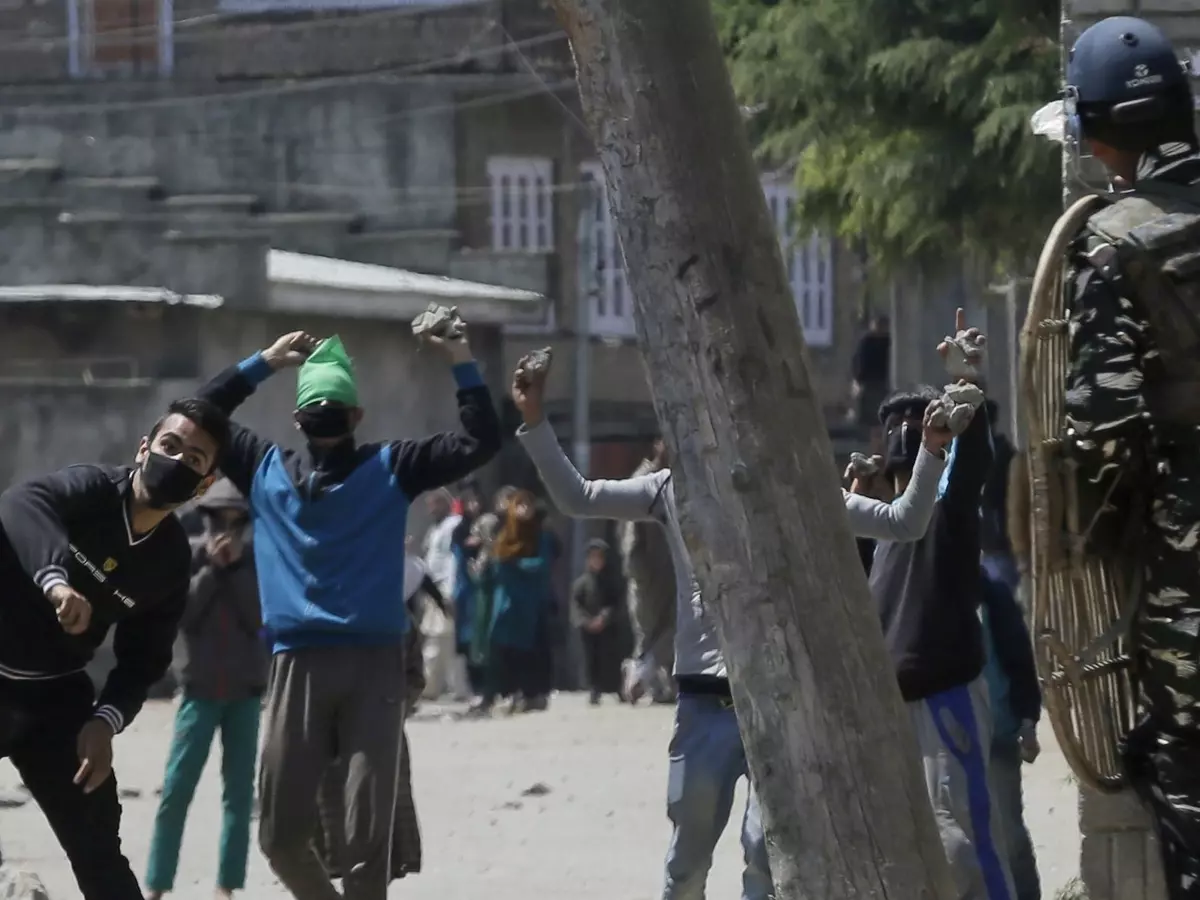Following Attacks On Jawans In Kashmir, Govt Mulls Special Powers For Forces In AFSPA Areas
The Centre made a forceful attempt on Wednesday for dilution of the Supreme Court's earlier judgment making registration of FIRs mandatory for encounter deaths during counter-insurgency operations by armed forces

A video went viral yesterday showing utter disrespect for the Indian armed forces a section of Kashmiri youths, while the paramilitary personnel had shown exceptional restraint.
According to experts, the restraint by the security personnel showed was a result of a Supreme Court order which made registration of FIRs mandatory for encounter deaths during counterinsurgency operations by armed forces. Also, in disturbed areas under the Armed Forces Special Powers Act (AFSPA).
This, however has moved the union government, which has sought for a dilution of the SC's order.

bccl/representational image
"If the position maintained by the impugned order continues, it may, one day, be well-nigh impossible to maintain peace and security," the Centre said.
Also Read: Six Killed, Many Hurt In Anti-Election Violence As Kashmiri Separatists Try To Hijack Bypolls
Putting forward government's view the attorney general, Mukul Rohatgi said:
"The Indian Army has to, in given circumstances, take quick decisions which cannot be dissected later on like an ordinary murder appeal. In other words, the scope of judicial review against active military operations cannot be on the same parameters as in other situations. Therefore, action taken by Army during operations cannot be put to judicial scrutiny."

afp/representational image
The AG's argument was a powerful illustration of the "tough" stand that the Centre has pursued in dealing with secessionist violence in AFSPA areas, especially in J&K.
Also Read: Soldier Injured After Terrorists Open Fire At An Army Convoy In Kashmir
Attorney general told the Supreme Court on Wednesday that in a combat operation against militants and insurgents, who were armed with weapons, Army personnel needed to deal with full force.

afp/representational image
But, if an Army personnel remained apprehensive about using force fearing a militant's death as that could lead to registration of FIR against him, it would be difficult to win the battle against insurgents and militants, who aim to secede territories from India, the Centre said in its curative petition filed through advocate R Balasubramanian.
Also Read: Forces Have A New Crowd Control Tactic For Stone Pelters In Kashmir - Grenade With Spicy Jelly
A bench headed by Chief Justice J S Khehar told the AG, "You cannot expand this petition to make the court deal with it again on merit."
The AFSPA, enforced in disturbed areas of some northeastern states and Jammu and Kashmir , provides immunity to armymen from inquiry by police for alleged deaths and excesses caused during operations against insurgents and militants.

ap/representational image
Aware of the slender chance of succeeding in a curative petition, the AG said,
"It is an extremely important petition not only for armed forces' personnel which face extreme danger to their lives during every counter-insurgency operation, but also equally important for the security and sovereignty of the country."
Also Read: Kashmir Police Warn Stone-Pelters That Coming To Encounter Sites Is Like Committing Suicide
He said the Army was sensitive to human rights and was not seeking immunity from inquiry by military authorities into complaints of excesses. "Empirical data as compiled from Manipur by the petitioner itself proves the point ¡ª 18,670 (90%) insurgents have been apprehended by security forces from 1990 to 2015 as compared to 1,881 (10%) insurgents/terrorists who have died in encounters," he added.
During the same period, Army and Assam Rifles lost 928 personnel to insurgents and 1,463 more were injured during counter-insurgency operations in Manipur alone. "The members of the armed forces need to be given the requisite measure of protection... The law will always attach importance to the protection of their life, physical safety and personal liberty," the Centre said.
